How To Use Clove Oil To Treat Acne?
Say 'no' to acne with simple yet effective natural remedies handpicked for you.
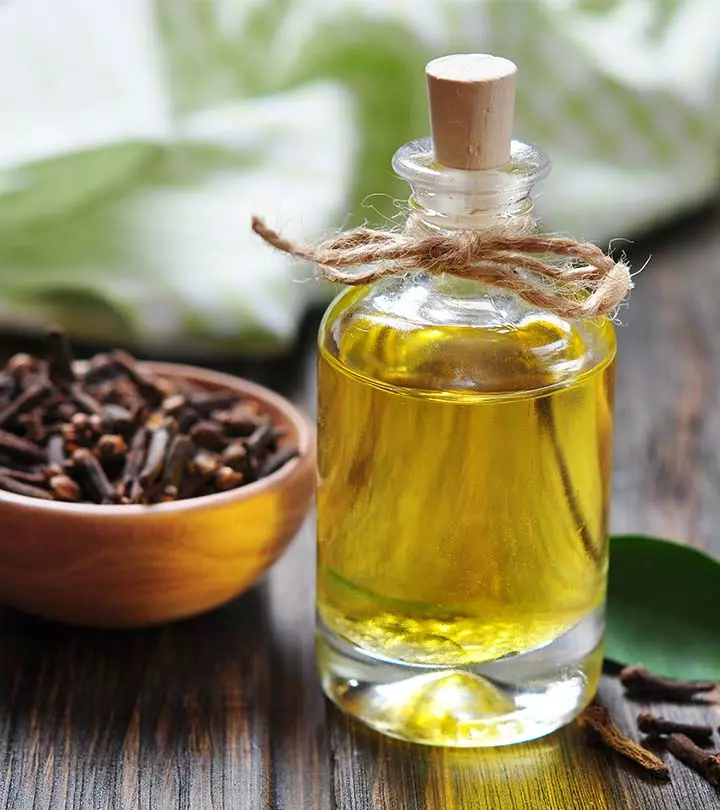
Image: Shutterstock
Dealing with acne can be tough. Though numerous ingredients have been promised to help minimize acne, promising results are seen with quite few. Clove oil is one such ingredient that can help in the management of acne. It has beneficial properties to treat your acne issues and curb the zitsi Small, red, inflamed, or swollen bumps and spots on the skin, often referred to as pimples or blemishes. . Wondering how clove oil helps manage and heal acne breakouts? This article discusses the way clove oil may work, the different ways you can use it to suppress the zits, and the precautions you must take. Keep reading to know more.

In This Article
Is Clove Oil Effective Against Acne?
Extracted from the aromatic flowers of the clove plant, clove essential oil is known for its robust antibacterial property.
The tropical plant oil has a spicy aroma and a pale-yellow hue. There are several skin benefits of clove oil. It has been found to be toxic to a wide range of bacteria, including the P.acnes. Its analgesic and antiseptic properties make the oil ideal for fighting skin infection and conditions like acne. The oil helps draw out skin impurities and also reduces the pain caused by cystic acnei A type of inflamed acne that causes red, painful, pus-filled breakouts to form deep underneath the skin. like acne vulgaris, whiteheads, and blackheads (1), (2). Thus, it also helps in blackhead removal and whitehead removal (2).
 Did You Know?
Did You Know?Key Takeaways
- Clove oil and coconut oil together can combat bacteria in the skin and clean pores, owing to their antibacterial properties.
- The antibacterial properties of clove oil can help fight skin infections, thereby preventing acne formation.
- Clove oil is enriched with antioxidants that aid in disinfecting the pores and preventing breakouts.
- Using clove oil while applying foundation can help heal the acne and prevent it from worsening.
How To Use Clove Oil For Acne
1. Clove Oil For Acne
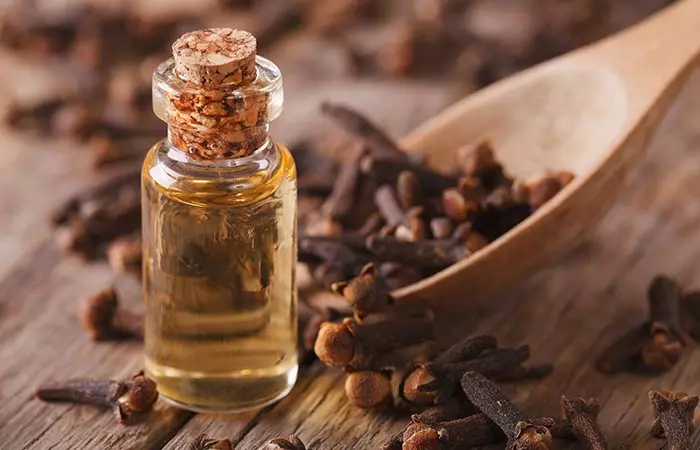
You Will Need
- A couple of drops of clove oil
- An oil-free, non-comedogenic moisturizer
- Oil-free facial cleanser
Prep Time
1 minute
Treatment Time
10 minutes
Method
- Apply a drop of clove oil onto your zit.
- Leave it on for about 10 minutes.
- Wash your face with some water and an oil-free facial cleanser.
- Pat dry and moisturize.
How Often?
As a spot treatment
Why This Works
Clove oil is rich in antioxidants and helps kill the acne-causing bacteria that might be present on your skin and help with the clogged pores (2). However, you must exercise caution while using this method as clove oil might be too strong for some.
2. Coconut Oil And Clove Oil For Acne
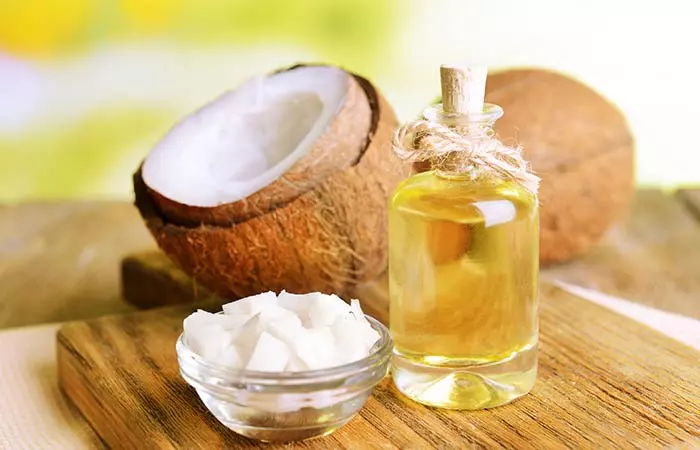
You Will Need
- 3-5 drops of clove oil
- 1 tbsp coconut oil
- A steamer
Prep Time
2 minutes
Treatment Time
15 minutes
Method
- Steam your skin for 5 minutes to help relax your pores.
- Combine the oils to create a blend.
- Apply this oil blend onto your face and massage gently in circular motions.
- Continue to massage your face, focusing on the acne-prone areas, for about 10 minutes.
- Wash your face with an oil-free cleanser and pat dry.
How Often?
Once a day
Why This Works
Coconut oil has strong antibacterial properties. It helps dissolve the dirt, dead skin cells, and oils that are clogging your pores while providing skin nourishment and moisturization with its fatty acid content (3). In combination with clove oil, it penetrates your skin to kill any acne-causing bacteria that may be present.
3. Olive Oil And Clove Oil For Acne
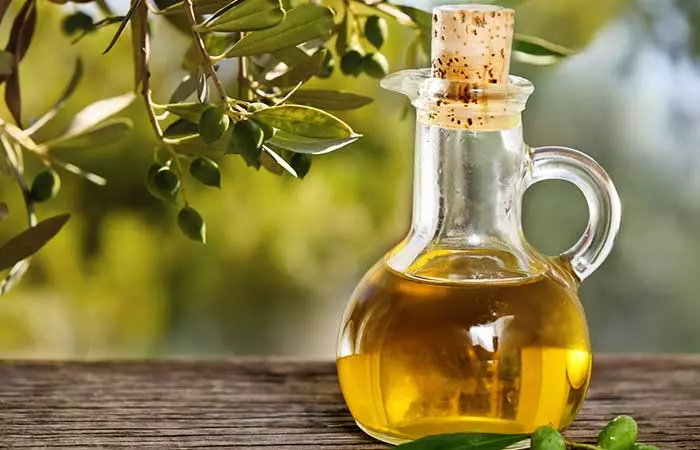
You Will Need
- 3-5 drops of clove oil
- 1 tbsp olive oil
- A steamer
Prep Time
2 minutes
Treatment Time
15 minutes
Method
- Steam your skin for 5 minutes to help relax your pores.
- Combine the oils to create a blend.
- Apply this oil blend onto your face and massage gently in circular motions.
- Continue to massage your face, focusing on the acne-prone areas, for about 10 minutes.
- Wash your face with an oil-free cleanser and pat dry.
How Often?
Once a day
Why This Works
For this treatment, you need to ensure that you are using 100% pure olive oil, as other varieties of olive oil may end up worsening your acne. Olive oil boosts antibacterial activity, conditions your skin, and helps unclog pores. It also helps nourish your skin and boosts its overall health, provides acne scar prevention, and improves skin brightening (3), (4). Anecdotal evidence suggests that it has subtle skin lightening properties that may help even your skin tone and reduce acne spots.
4. Foundation And Clove Oil For Acne
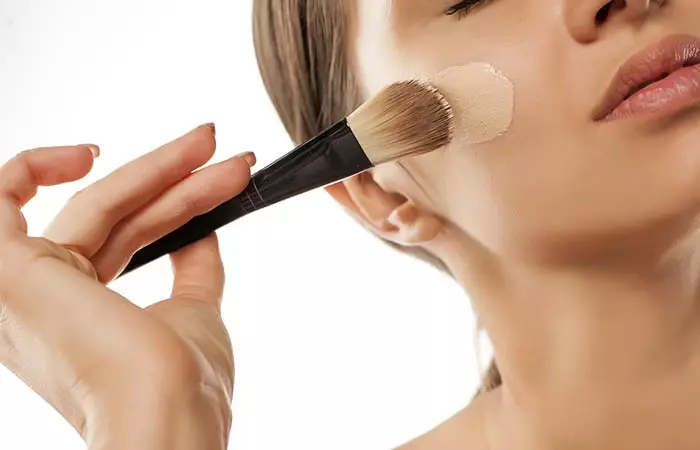
You Will Need
- Makeup applicator
- 1 drop clove oil
- Foundation
Prep Time
2 minutes
Treatment Time
5 minutes
Method
- Dispense the regular amount of foundation that you need for your face onto your makeup applicator.
- To this, add one drop of clove oil.
- Apply your makeup as you normally would.
- Don’t forget to remove your makeup at the end of the day.
How Often?
Whenever you need to wear makeup
Why This Works
There are times when you cannot avoid wearing makeup and in such situations, clove oil helps treat your acne rather than making it worse. However, it is not a good idea to favor this method of using clove oil over the others.
5. Moisturizer And Clove Oil For Acne
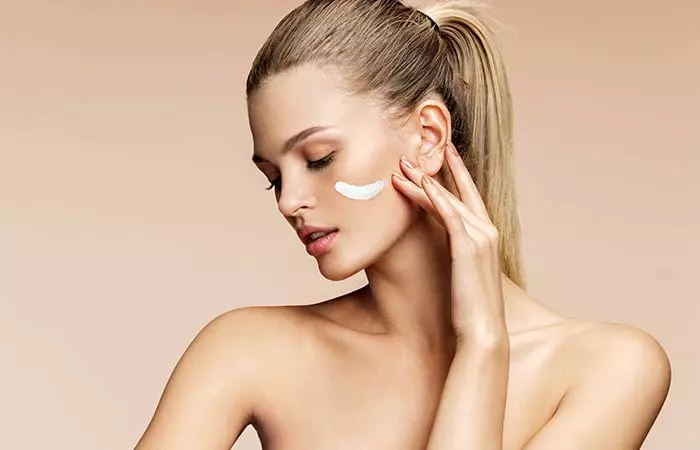
You Will Need
- Non-comedogenici A term used to describe the skin care products or cosmetics that do not clog the pores on your skin. moisturizer
- 1 drop clove oil
- Oil-free facial cleanser
Prep Time
2 minutes
Treatment Time
2 minutes
Method
- Wash your wash with an oil-free facial cleanser and water.
- Pat your skin dry and proceed to dispense a pea-sized amount of moisturizer.
- To this, add the clove oil.
- Gently massage the moisturizer onto your face.
How Often?
Once a day
Why This Works
This is one of the easiest ways to use clove oil for acne. A non-comedogenic moisturizer, being lightweight, does not affect your skin’s pH level and reinforces your skin’s moisture barrier. The clove oil helps disinfect your pores, heals acne, and prevents breakouts. It helps with skin healing and acne spot treatment with chemical-free skincare.
Tips And Precautions
Applying clove oil to fight and eliminate acne is a good idea, but you must be cautious.
- No matter what carrier oil you use, do not leave the clove oil mix on your skin for too long. Always ensure to wash off with water and pat dry using a soft cloth.
- For people with sensitive skin, a patch test is advisable before applying clove oil to their skin for treating acne. Test it out on your wrist or behind your ear before you apply it onto your face.
- If applying the oil leads to any skin complication, you should contact a dermatologist immediately.
- Don’t only use clove oil as a monotherapy to manage acne. Pair it with anti-acne products recommended by your dermatologist.
 Did You Know?
Did You Know?Infographic: 3 Ways To Use Clove Oil For Acne
Clove oil is a powerful natural remedy for treating acne. Its antimicrobial and anti-inflammatory properties make it an effective solution to combat acne-causing bacteria and reduce inflammation. Take a look at the infographic below to discover the top ways to harness the power of clove oil and effectively treat acne.
Some thing wrong with infographic shortcode. please verify shortcode syntaxClove oil’s analgesici A class of drugs that are specifically formulated to relieve pain without causing the loss of consciousness. and antiseptic properties help treat several skin issues, especially acne. Using clove oil for acne management is one of the best home remedies available. It helps in acne scar treatment. Additionally, clove oil can be paired with natural astringents like witch hazel, tea tree oil, and green tea to aid in acne management. Including clove oil in your skin care regimen will help you get clear and flawless skin. The tips and recipes mentioned in the article will guide you on using clove oil on your skin. Always do a patch test if you are using it for the first time or have sensitive skin. Consult your doctor immediately if you notice any reactions.
Frequently Asked Questions
How long does it take for clove oil to work?
It may take some time before it shows visible results. Consult your doctor before using it.
How do you make clove paste for acne?
This a basic natural remedy for DIY skincare. Mix 1 spoon of cinnamon, 2 tablespoons of apple paste, and 1 spoon of clove oil. Add 2 teaspoons of cold green tea to the mixture. Apply a thin layer to your face and let it sit for 20 minutes. Rinse with water, pat dry, and apply moisturizer.
Can clove oil cause skin irritation when used for acne treatment?
Yes, clove oil can cause skin irritation when used for acne treatment, especially if it is not diluted properly.
Are there any side effects of using clove oil for acne treatment?
Some potential side effects of using clove oil for acne treatment include skin irritation, redness, and swelling. If you notice these symptoms, stop using clove oil and immediately consult a doctor. Perform a patch test beforehand to check for allergic reactions.
What are the disadvantages of clove oil on the face?
The disadvantages of using clove oil on the face include skin irritation, redness, sensitivity, and allergic reactions.
Which clove oil is best for the face?
When choosing clove oil for the face, it is best to use 100% pure and organic essential oil. And dilute with a carrier oil before using it on your body or face.
How many times a day can I use clove oil?
Clove oil should only be used once a day for acne treatment to avoid over-drying or irritating the skin.
What is 100% clove oil used for?
There are several uses for 100% clove oil like treating toothaches, headaches, and digestive problems naturally. However, only use 100% clove oil after consulting a doctor.
Illustration: Clove Oil For Acne Treatment - Say Goodbye To Your Skin Problems
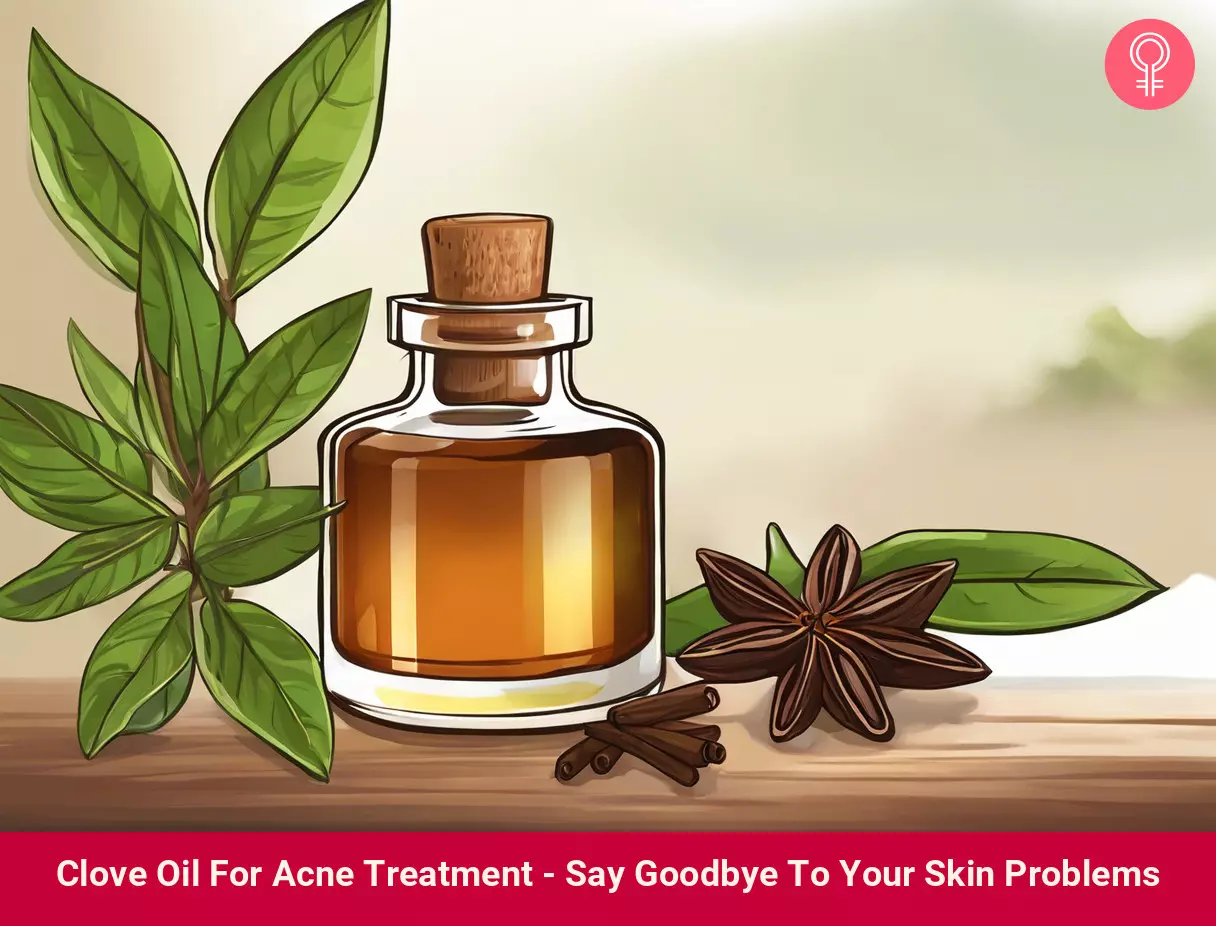
Image: Stable Diffusion/StyleCraze Design Team
Discover the natural power of clove oil in treating pimples and enhancing your skin health. Unveil the secrets of this natural oil by watching this enlightening video.
References
Articles on StyleCraze are backed by verified information from peer-reviewed and academic research papers, reputed organizations, research institutions, and medical associations to ensure accuracy and relevance. Read our editorial policy to learn more.
- Clove (Syzygium aromaticum): a precious spice
https://www.ncbi.nlm.nih.gov/pmc/articles/PMC3819475/ - The Antibacterial Activity of Clove Essential Oil Against Propionibacterium acnes and Its Mechanism of Action
https://jamanetwork.com/journals/jamadermatology/fullarticle/711838 - Anti-Inflammatory and Skin Barrier Repair Effects of Topical Application of Some Plant Oils
https://www.ncbi.nlm.nih.gov/pmc/articles/PMC5796020/ - Antibacterial Activity of Three Extra Virgin Olive Oils of the Campania Region, Southern Italy, Related to Their Polyphenol Content and Composition
https://www.ncbi.nlm.nih.gov/pmc/articles/PMC6780878/
Read full bio of Dr. Meena Konada
Read full bio of Arshiya Syeda
Read full bio of Ramona Sinha
Read full bio of Swathi E






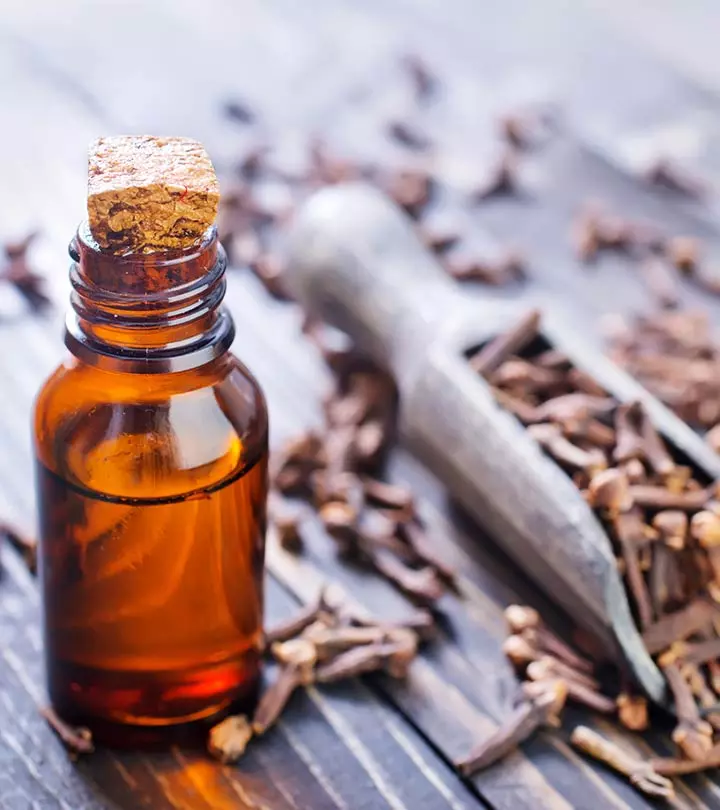
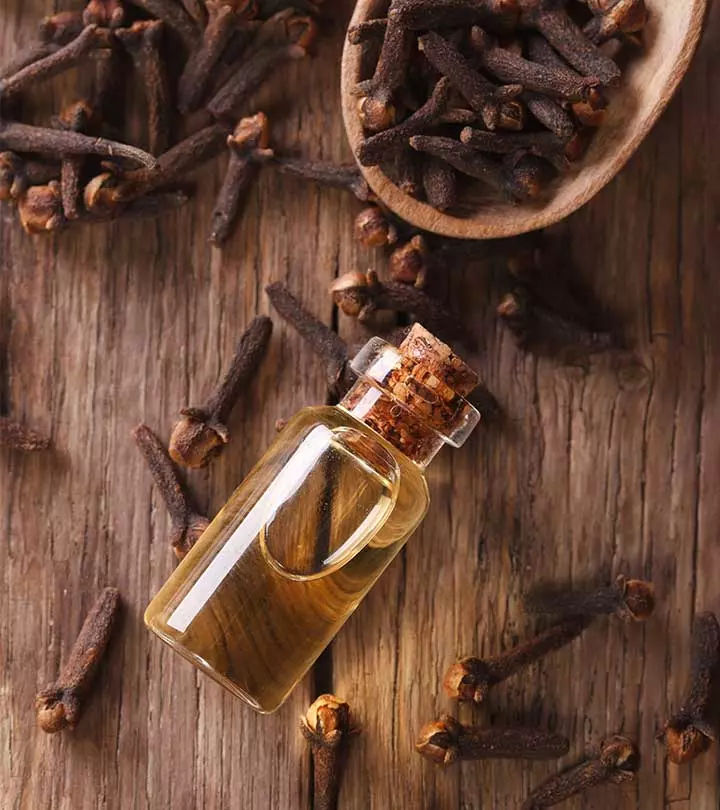
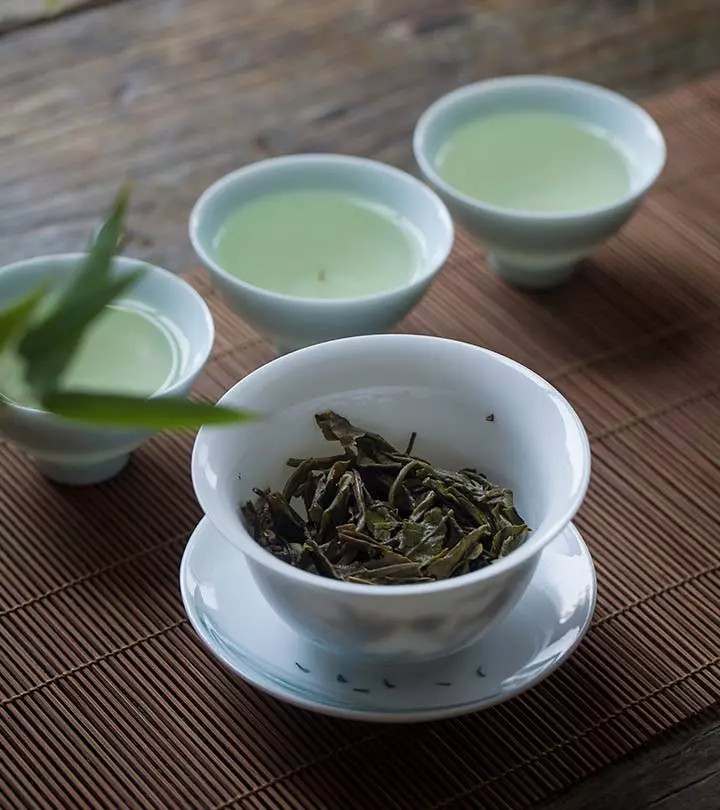
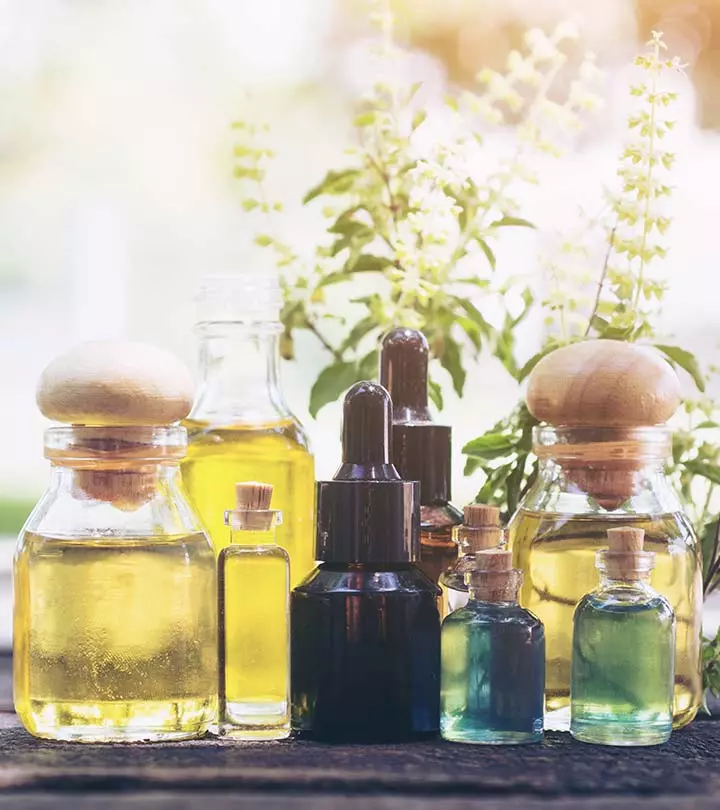
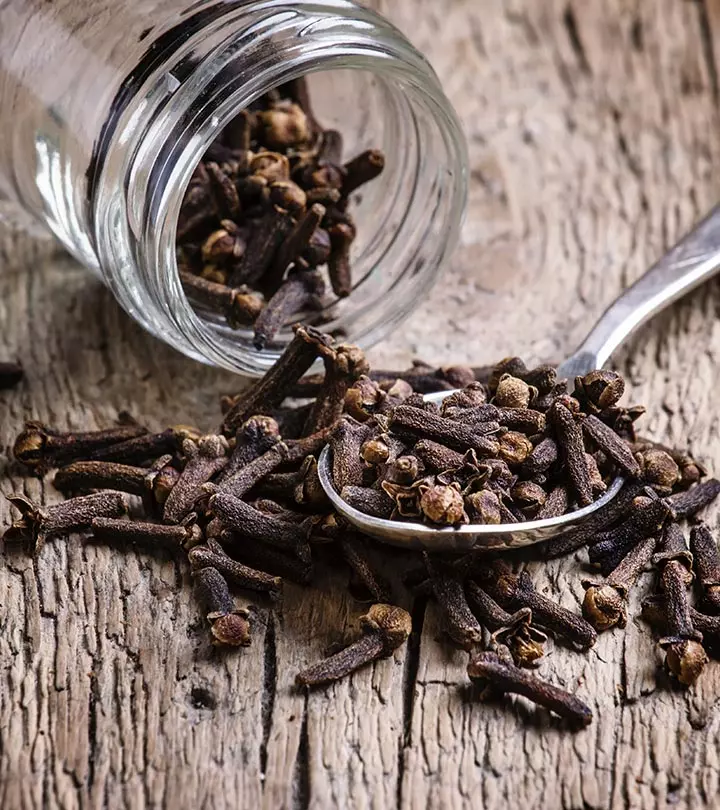
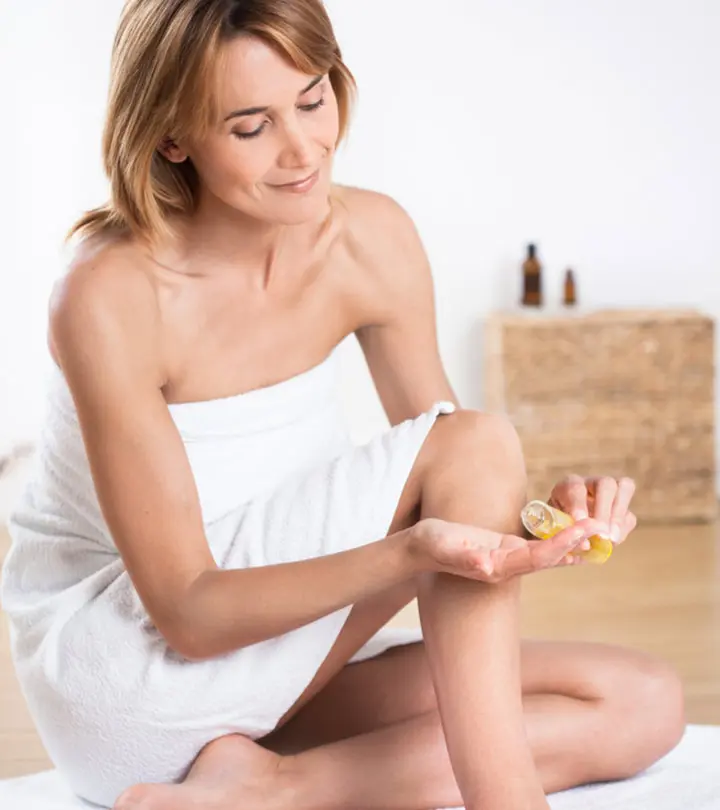
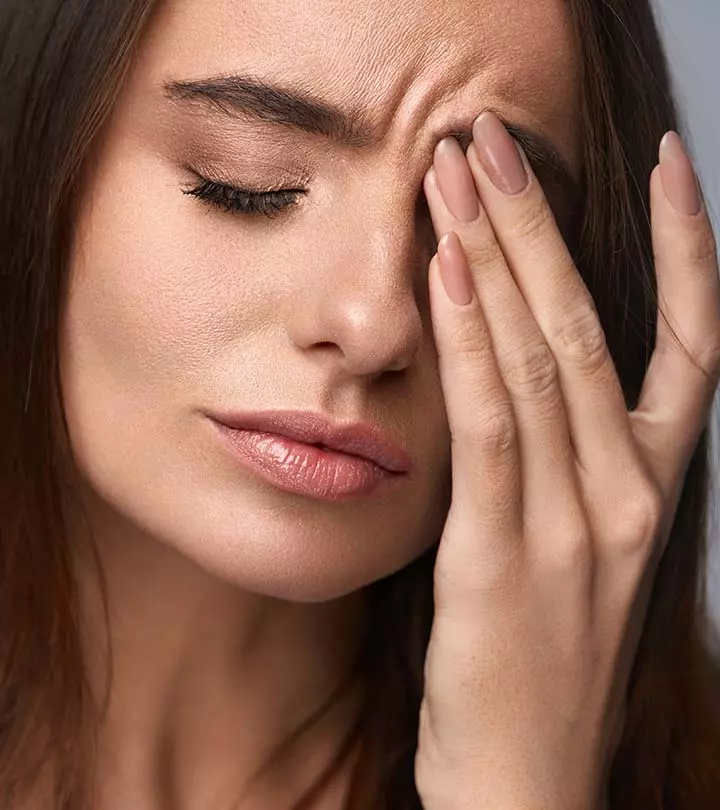
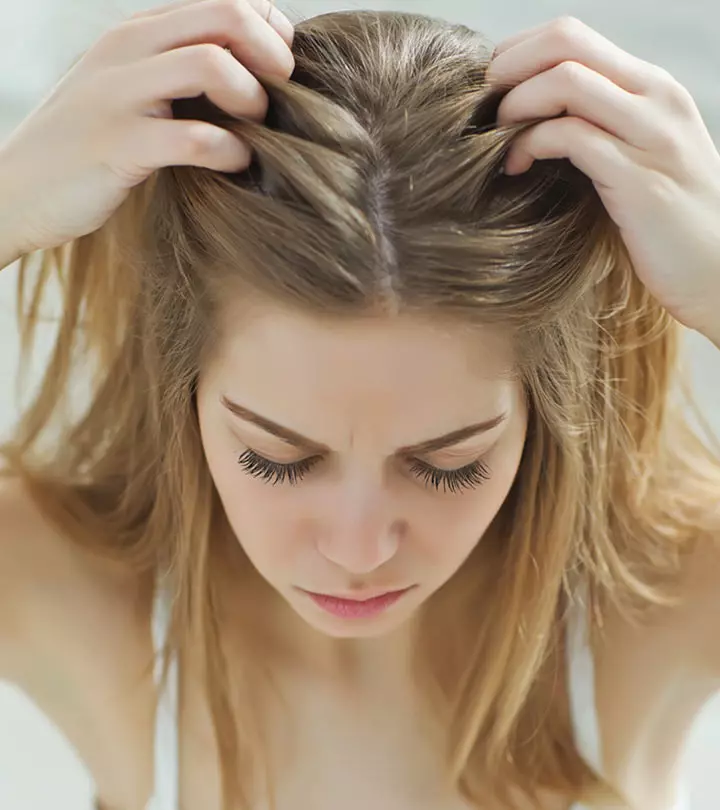
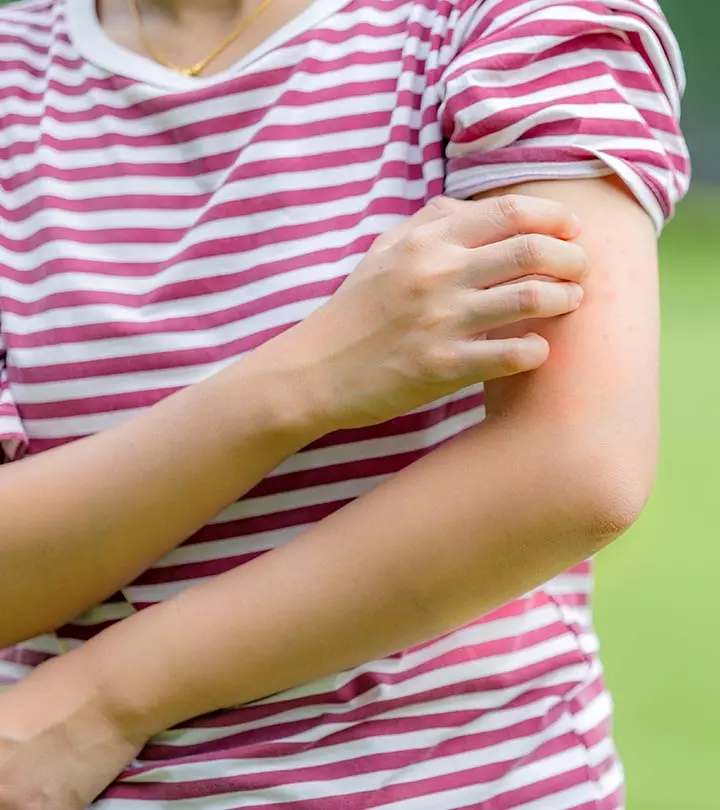


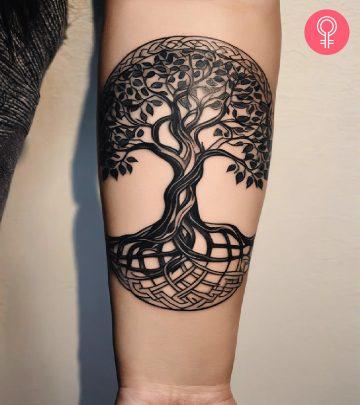


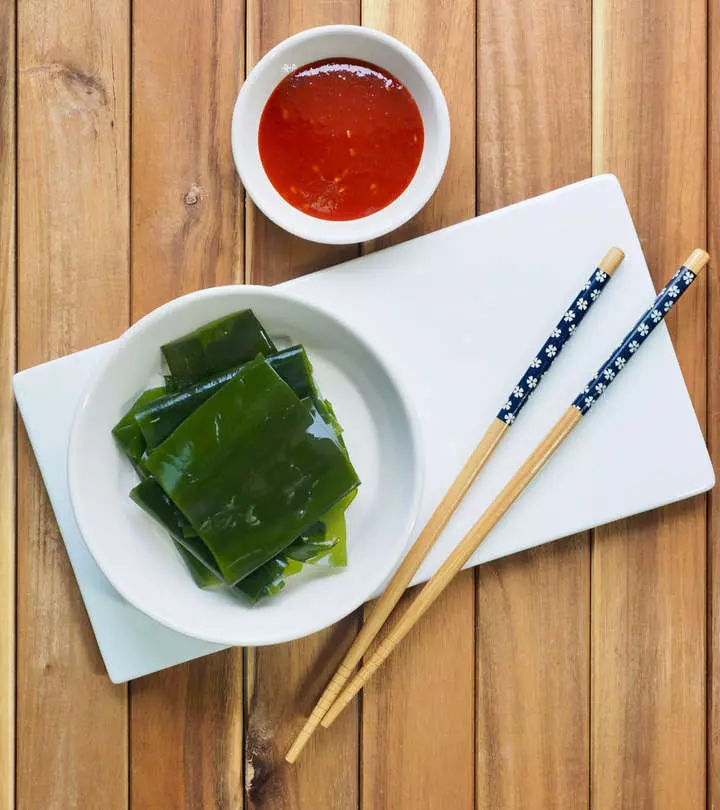




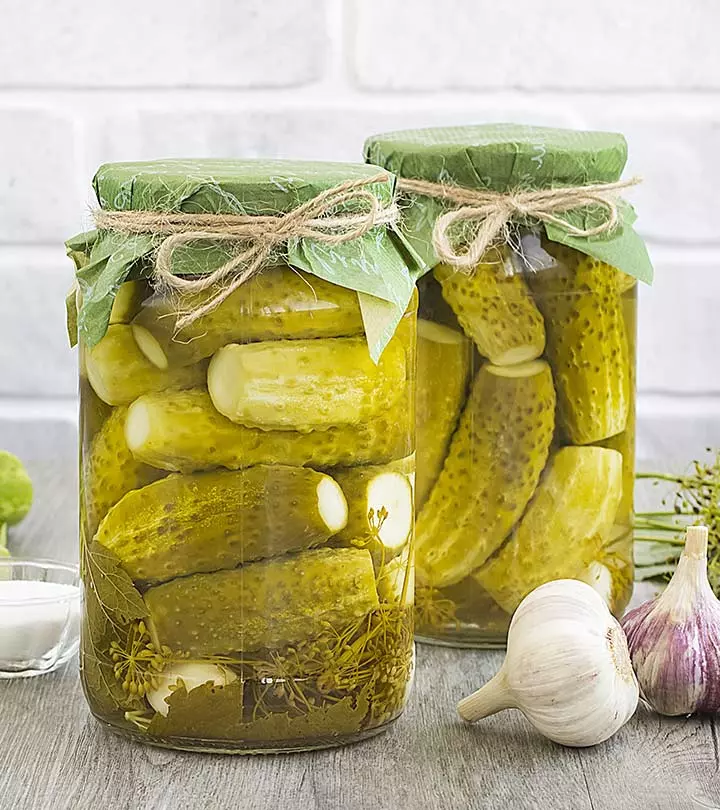

Community Experiences
Join the conversation and become a part of our empowering community! Share your stories, experiences, and insights to connect with other beauty, lifestyle, and health enthusiasts.